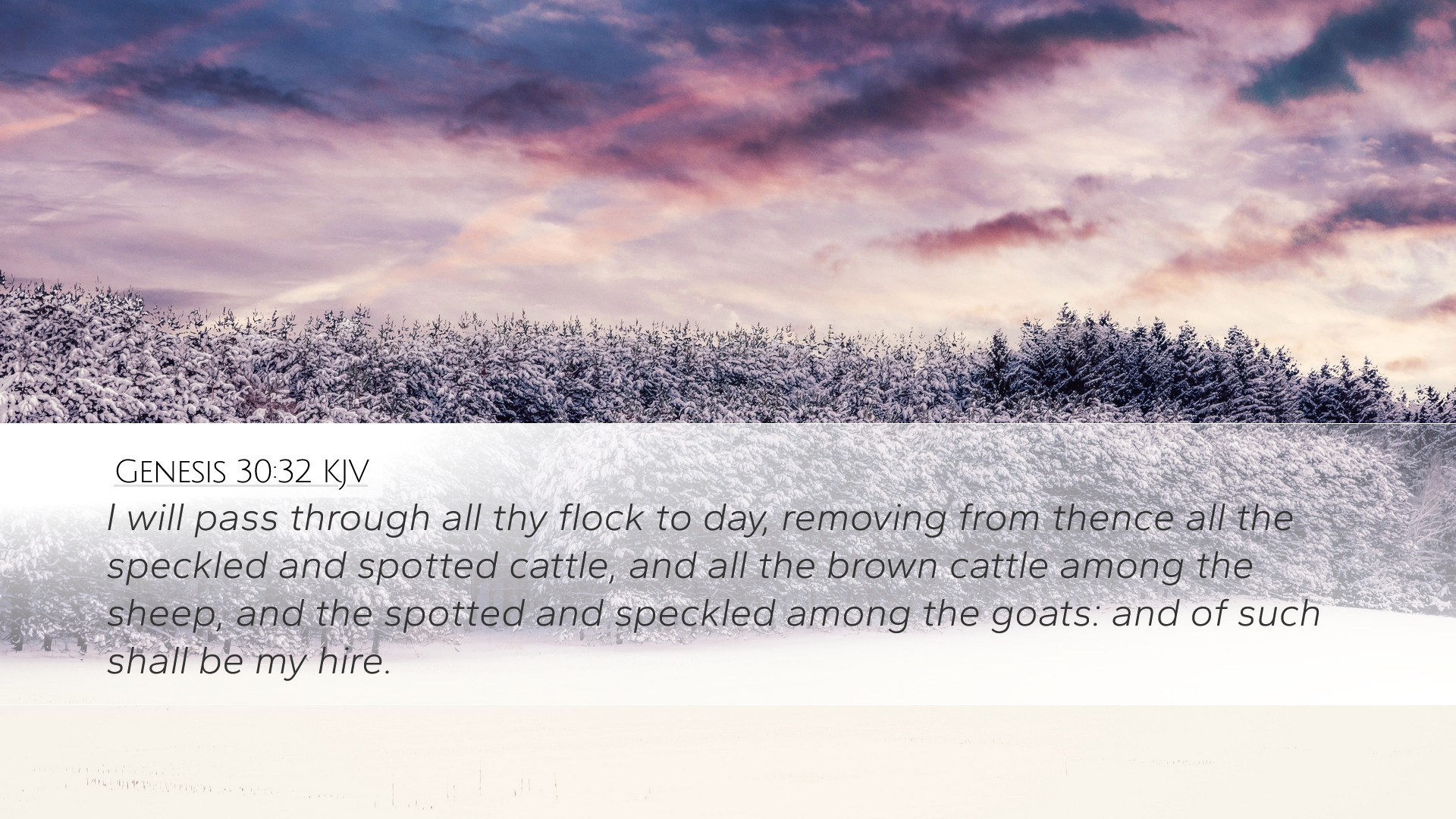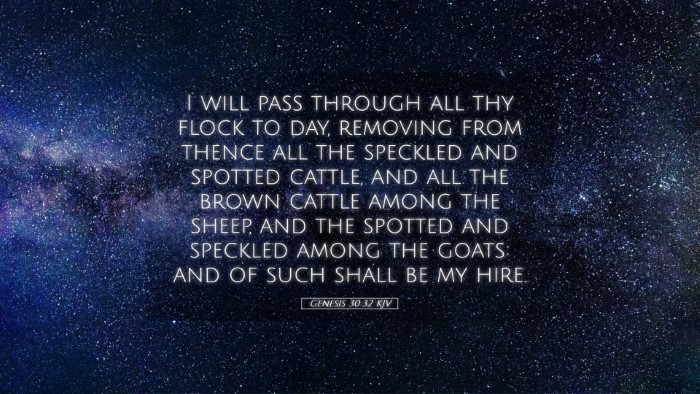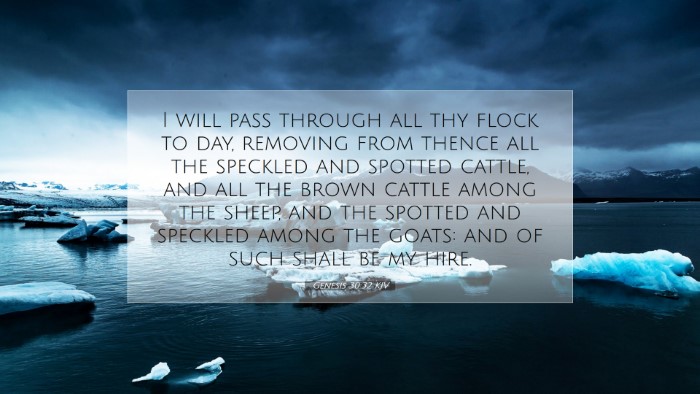Commentary on Genesis 30:32
Bible Verse: “I will pass through all thy flock today; removing from thence all the speckled and spotted cattle, and all the brown cattle among the sheep, and the spotted and speckled among the goats: and of such shall be my hire.”
Contextual Background
This verse is situated in a larger narrative involving Jacob, Laban, and the breeding of livestock. Jacob has served Laban for many years, and he is seeking to establish his own wealth, distinct from Laban’s influence. The specific phrase in this passage indicates Jacob's strategy to separate the striped, spotted, and speckled animals, which he wants as his wages.
Theological Insights
The verse highlights themes of divine providence and the means by which God orchestrates His purposes through human action. Jacob's cleverness in managing the breeding of Laban's flocks illustrates human agency in conjunction with divine will.
Matthew Henry’s Commentary
- Divine Providence: Henry emphasizes that God’s hand is evident throughout Jacob’s dealings. The success of Jacob’s schemes is not merely due to his ingenuity but is grounded in God’s promise and providence.
- Separation and Consecration: He notes that Jacob’s selection process for his employ demonstrates a principle of separation; Jacob is distinguishing his own future from that of Laban, which is also a metaphor for the distinction between God’s people and the world.
Albert Barnes’ Commentary
- Wise Negotiation: Barnes interprets Jacob's actions as shrewd negotiation tactics. He points out that Jacob is not merely leaving his future to chance but actively determining it through strategies that align with his goals.
- Symbolism of Livestock: He further explains that the spotted and speckled livestock here represent a significant portion of the flock, symbolizing the idea of inheritance and how God often chooses the least likely for great purposes, relating to the broader narrative of Israel's history.
Adam Clarke’s Commentary
- Understanding of Animal Breeding: Clarke offers an analysis of the scientific aspects of animal breeding, suggesting that Jacob had learned to use rods in a way that influenced reproduction. This signifies an understanding of genetics before modern science.
- Spiritual Application: He also draws spiritual parallels, emphasizing faith in God’s promises through the mundane actions of life. Clarke encourages readers to see God's hand at work in circumstances that may seem ordinary.
Practical Applications
For pastors, students, and theologians, this verse encourages a deep reflection on how to discern and act according to God’s guidance in one’s life. The strategies that Jacob employed serve as a reminder of the balance between faith and action. Here are a few key takeaways:
- Faith in Divine Guidance: Like Jacob, believers are called to trust in divine providence while employing practical wisdom in their decisions.
- Intentional Living: The passage illustrates the importance of intentionality in one’s pursuits, especially in matters of livelihood and family.
- Symbol of Christ: Jacob's experience can be seen as a foreshadowing of Christ, the Good Shepherd, who also claims His own while separating from false teachings.
Conclusion
Genesis 30:32 offers profound insights into the interplay of human initiative and divine sovereignty. The commentaries by Henry, Barnes, and Clarke each contribute to a richer understanding of the text, providing timeless wisdom applicable in both personal and pastoral contexts. Believers are invited to engage actively with their circumstances while remaining anchored in faith that God is orchestrating their paths for good.


